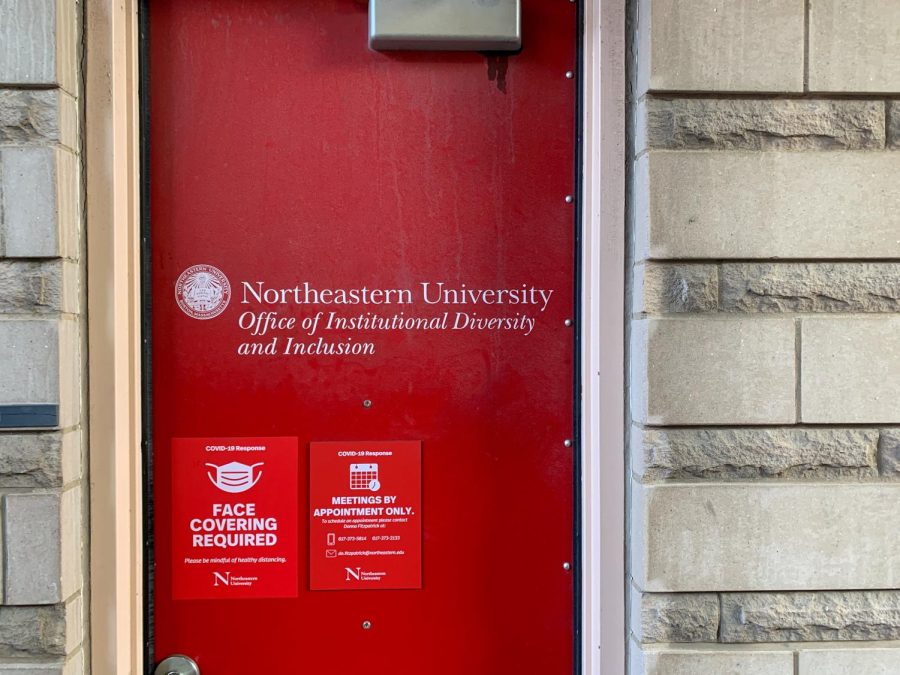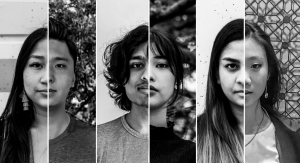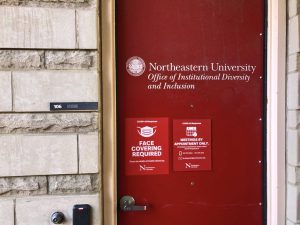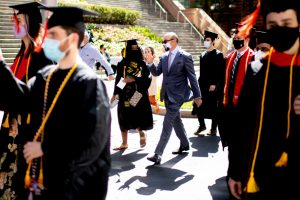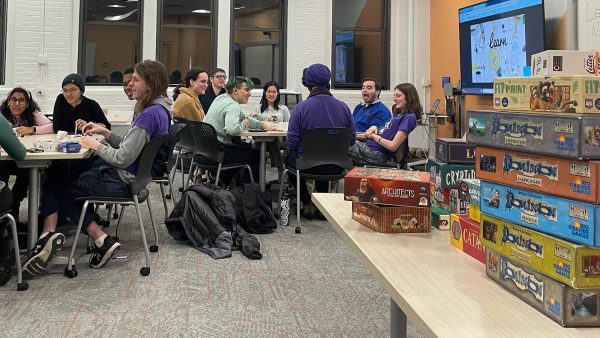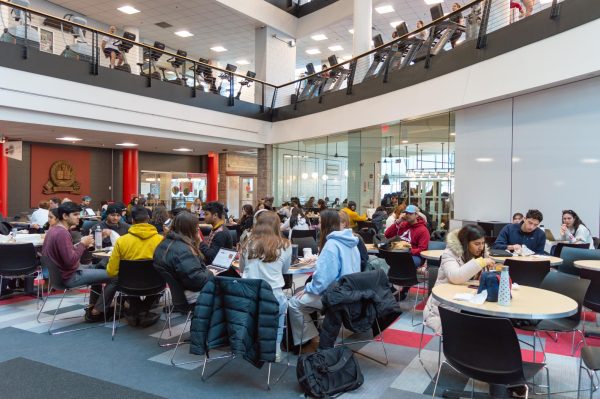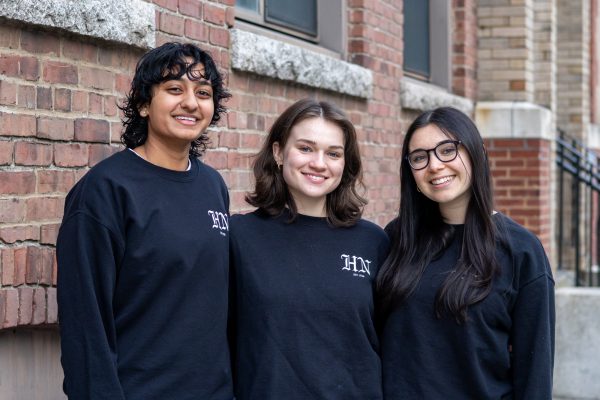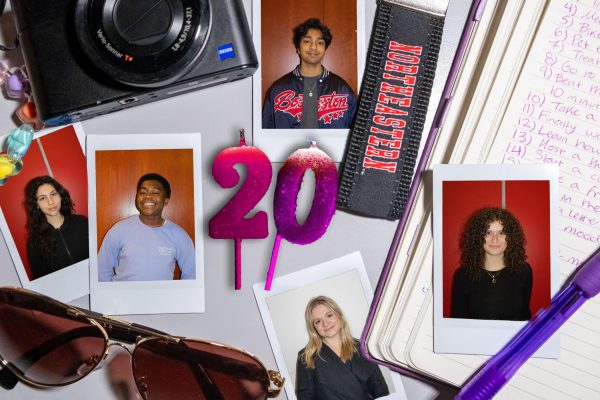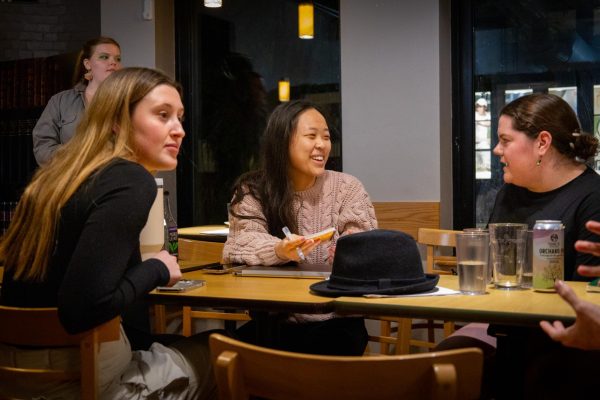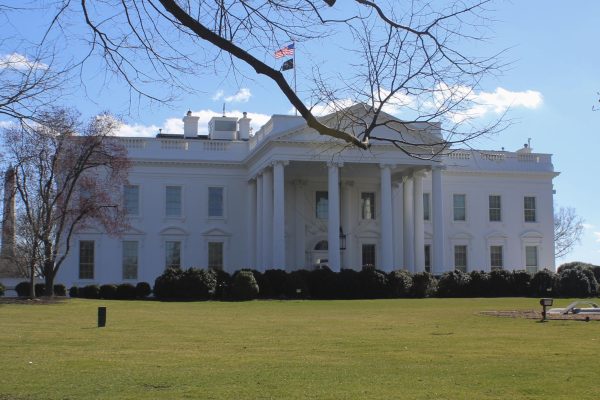University-wide Racial and Cultural Literacy Trainings receive mixed reactions
The deadline for completing modules one to three of the training is Dec. 31, and the deadline for completing module four is March 31, 2022. If a student, faculty or staff cannot access the trainings, they can contact Phil He at n.he@northeastern.edu.
In June, Northeastern announced the university’s action plan to address the rise in hate and violence against Asian Pacific Islander Desi Americans, or APIDA, communities and students. These steps highlighted two areas of focus: enhancing infrastructure for learning and creating a more inclusive student experience.
Since then, the university has implemented several initiatives, including hiring new deans, launching the Asia America and the World speaker series and, as of the beginning of November, implementing mandatory university-wide anti-racism and cultural literacy trainings.
“In the summer, when the president made the commitment to the university community, the Presidential Council on Diversity and Inclusion convened several workstream groups, one of which is called diversity work stream,” said Phil He, vice provost for faculty diversity, who was involved in the creation of the trainings. “So you have a group of faculty and staff working together to come up with a plan, one of which is the training.”
The trainings, which are required for all students, faculty and staff in Northeastern’s global network, were sent to the general Northeastern community Nov. 2. They can be accessed through a link sent in an email from Academic Impressions, an educational consulting company hired by the university that specializes in video trainings. They can also be accessed through the Student Hub, where it will appear as a notification until they are completed.
The student trainings are organized into four modules: “Establishing a basic understanding of diversity, equity and inclusion;” “Building racial and cultural literacy;” “Privileged identities and power dynamics;” and “Taking action against racism.”
The trainings and their rollout have received mixed reactions from students and faculty alike, but those who spoke with The News agreed the trainings were a good start on Northeastern’s continued cultural and racial awareness and education journey.
Within each module there are a series of short videos, ranging from just over a minute to almost 10 minutes long. The videos are hosted by Dominic Rollins, a consultant and coach at Academic Impressions.
The videos also featured members of the Northeastern community, including Athletic Director Jim Madigan, fourth-year Claire Blaufox and Director of Student Services for the San Francisco and Silicon Valley campuses Jackie Li.
“I was emailed by Dr. Phil He, and he asked me if I would like to be part of it because they were looking for some people to have some sort of representation of the Northeastern community itself and not just being completely people outside of the community,” said Blaufox, a chemical engineering major and the co-chair of the Pan Asian American Council.
The community members who were involved coordinated with each other to record specific anecdotes and thoughts that would be most relevant to the content of the videos.
Student reactions to the training have been varied; many students took to Reddit to voice concerns and discuss them. Kayla Pringle, a second-year mechanical engineering major, told The News she was disappointed with the lack of engagement due to the abundance of videos.
“I think [Northeastern is] taking the right steps or they have the right mindset, they just need to do a little bit better about what steps they’ve taken,” Pringle said. “They definitely have the idea, and they could be doing nothing. I think they need just a little bit more, but they’re definitely on the right track.”
Blaufox said she was surprised when the trainings were released because they didn’t take the form she expected.
“I think that I didn’t quite go deep enough with my own questioning. I definitely made some assumptions about the execution,” Blaufox said. “I’m not quite sure where those gaps may have come from, but basically, I was operating under the assumption that it would be similar to the Title IX trainings where you can’t skip ahead, and you have to complete quizzes at the end, and you have to pass those quizzes.”
When taking the trainings, the videos hosted by Rollins fill most of the screen, and the upcoming videos are listed on the left. Viewers can’t skip through the videos or speed them up, and a transcript is available. At a few points in the training, there are open ended questions for viewers to answer, although they are not checked for accuracy before viewers can move on.
Blaufox also had trouble accessing the trainings — when she received the link and logged in, no modules showed up on her account. She reached out to He and was put in contact with Academic Impressions but still was not given access to the training. She ended up watching them with her roommate.
Blaufox is not the only student this happened to — when she spoke with The News, she said she knew of a handful of other students who also had not received the link or had other technical problems.
Even for students who did receive the emails from the provost and Academic Impressions, issues remained.
“I don’t think I would have even opened the email if I hadn’t been made aware of it by my professors,” said Lauren Bough, a fifth-year international affairs major and member of the Asian Studies Student Advisory Board. “It easily could have been lost in my Outlook inbox. And I think there was one email follow up … but it just didn’t seem like it was very well promoted.”
Beyond problems with accessing the trainings, some students also had qualms with how they were constructed.
Several students who spoke with The News suggested the trainings should have required an additional discussion component, such as incorporating them into a class or requiring a meeting with an advisor to discuss the material.
“I think creating conversations is, in my mind, more important than having these trainings stand alone,” Bough said. “It’s not like you’re having conversation with other students and faculty on campus, and I think that needed to be an important part.”
Pringle said she was hoping for a more engaging training, instead of video modules that are easy to ignore.
“I knew that they were working on this for a while because I had a friend who kind of was helping contribute to it, and at first, I was kind of excited. I thought it was going to be something that was mandatory and more implemented into classes that people had to take,” Pringle said. “And then it came out and it’s just a ton of videos … so it’s fairly disappointing.”
The trainings should, at the very least, get the Northeastern community thinking about racial issues, Blaufox said. But she is concerned the people who need the trainings will skip through or ignore the videos and not get anything out of it.
“I just think that Northeastern needed to have executed this better,” Blaufox said. “It very much feels like something that they can just check off the list of things that [President Joseph E. Aoun] said that Northeastern would do.”
Northeastern requires first-year students to do various other trainings, including a drug and alcohol training and a Title IX training. Blaufox pointed to the Title IX training, which she remembers doing as a first year, as a better implementation of an online asynchronous training.
“I just really would have wanted to see more of an accountability stance, and I think it’s even more disappointing because we know that Northeastern knows how to implement that,” Blaufox said. “Like the Title IX training, this is not something that’s going to solve everything. But I think for a lot of people, it could at least get them thinking and start thinking about things in ways that they haven’t done so before.”
The training includes various short response questions to inspire participants to engage with the material before they are allowed to progress through the modules. The answers, however, are sent to Academic Impressions and are confidential to Northeastern.
Pringle said she wished there had been more community involvement in the trainings.
“It seems like they got a couple of heads from the university, but if they’d actually ask some of the cultural clubs or some of the social identity clubs to really sit down and maybe record stuff for this and see what was actually impactful, I think that would be a lot more helpful,” Pringle said.
Northeastern staff met with Academic Impressions weekly for many months to create a fully customized curriculum. As the vice provost for faculty diversity, He was involved in the creation process and was influenced by suggestions from various groups of stakeholders, including a student group.
“We wanted a customized training, we wanted our input but we wanted their infrastructure to launch the training. … So we worked with them and co-developed the curriculum,” He said. “During that process, that core team of content design from Northeastern worked weekly with our colleagues from Academic Impressions, and we consulted our faculty focus group, staff focus group and student focus group.”
Allison Bauer, a health science professor, has invested her own time into doing external diversity trainings, including with the Racial Equity Institute and through the Center for Advancing Teaching and Learning Through Research at Northeastern. When she spoke with The News she hadn’t had a chance to do the trainings, but she said she thought they were a good starting place.
“It’s important to level set, it’s important to get everybody speaking the same language. You’ve got to start somewhere,” Bauer said. “Having said that, there has to be an ongoing commitment that takes a lot more time and energy and a lot more resources.”
Bauer emphasized that the commitment from the university cannot end with these trainings, and the commitment to diversity and cultural trainings must be a continuous process.
“It’s hard because you want to applaud effort, but it’s not like ‘OK, check the box. We did that,’” Bauer said. “That’s certainly one of the biggest concerns, having done this, do we get to say, ‘we checked the box?’ Versus ‘this is the first step of many.’”
Senior Vice Provost and Chief Inclusion Officer Karl Reid called the trainings “diversity, equity and inclusion 101,” and said they are a starting point; the next step needs to be facilitated conversations.
“Inclusion is about culture, it’s about knowledge, it’s about how we treat each other, how we create psychologically safe environments. So the training is so very important around inclusion — it’s about creating a climate of awareness and sensitivity and being able to invite people from all backgrounds and experiences,” Reid said.
Bauer said she is optimistic that the trainings are just the beginning, and she hopes to see a continued commitment from Northeastern to creating a more inclusive, welcoming and educated campus.
“The introductory language in the email said ‘as part of the President’s commitment to’ — I think that there are certainly some good, smart people who are trying to make this be that, but I think that we just all have to keep our eye on the ball,” Bauer said.
Reid encouraged students to start the trainings without preconceived notions and to treat them as an opportunity to learn and help “create a better world.”
“Go into this with an open mind, a growth mindset that everyone can learn something from this,” Reid said. “At the end of the day, what we want to do is interrupt our natural processes to react to situations that are based on our lived experiences, our cultures, etc.”
Pringle said she has seen some improvement in terms of Northeastern’s acknowledgement of different cultures — she especially liked the Juneteenth celebration last year.
“I’m hoping to see more student involvement and really, really just hope that they can do better,” Pringle said. “I know they tried, they definitely tried. But I can’t say that it was successful at all. A lot of people are upset about it and I think a lot of people don’t even know it’s mandatory.”
The deadline for completing modules one to three of the training has been extended to Dec. 31, while the deadline for completing module four remains at March 31, 2022. If not completed by the deadline, students and staff will receive a follow-up email reminder. If a student, faculty or staff cannot access the trainings, they can contact He at n.he@northeastern.edu.


